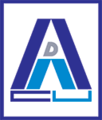TAGS: ANTITRUST, ANTITRUST CLASS ACTION, STAND ALONE CLAIMS, PRIVATE ENFORCEMENT, CARTELS
According to the Consumer Association, 14 banks formed a corporation called PRISMA MEDIOS DE PAGOS S.A. to eliminate competition and increase profits, which allegedly came at the expense of consumers.
The banks named in the lawsuit are Banco Santander Rio S.A. Banco Galicia y Buenos Aires S.A BBVA Banco Francés S.A., Banco de la Provincia de Buenos Aires, HSBC Bank Argentina S.A., Industrial and Commercial Bank of China Argentina S.A.- ICBC-, Banco Patagonia Argentina S.A., Banco Itau Argentina S.A., Banco Comafi S.A., Banco Credicoop Coperativo Limitado S.A., Banco Macro S.A., Citibank N.A., Banco de la Nación Argentina and Nuevo Banco de Santa Fe S.A.
As of now, the 14 banks have responded to ADACU's lawsuit and, while acknowledging that they were co-owners of the PRISMA MEDIOS DE PAGOS corporation, they have criticized the lawsuit and do not consider themselves responsible for compensating their clients.
In a similar manner, PRISMA MEDIOS DE PAGOS S.A., which is now owned by ADVENT INTERNATIONAL, has also criticized the lawsuit and resisted the claim.
Currently, an important development in the case is that the Judge has ordered the registration of the collective action in the Supreme Court's Collective Proceedings Registry. This registration provides publicity to the class action.
It's worth noting that the Argentina Antitrust Commission, which acts as a watchdog for competition issues, launched an investigation into alleged cartel behavior after discovering that 14 banks had a common corporation and were setting certain prices for their services. The watchdog sent a recommendation to the Central Bank, which then ordered a decrease in the Interchange Fee from April 1, 2017. The Antitrust Commission also filed charges against the banks.
Nevertheless, the administrative investigation into the alleged cartel behavior was interrupted. The banks offered a "Commitment" in which they pledged to divest themselves of all shares in PRISMA, which they ultimately did. When the watchdog accepted the commitment, it ended the investigation before determining whether the behavior was illegal or not.
ADACU argues that the fact that the antitrust investigation was ended by the acceptance of the banks' Commitment does not absolve the banks of responsibility for their anticompetitive behavior.
The banks should have faced consequences for their actions, and the consumers who were affected by these actions deserve compensation and punitive damages.
Specifically, ADACU believes that the banks should compensate their clients for visa credit card transactions made before the Central Bank ordered a decrease in the interchange fee, including punitive damages and accumulated interest.
Antitrust class action lawsuits can be a powerful tool for consumers to hold companies accountable for their actions and seek compensation for damages.
